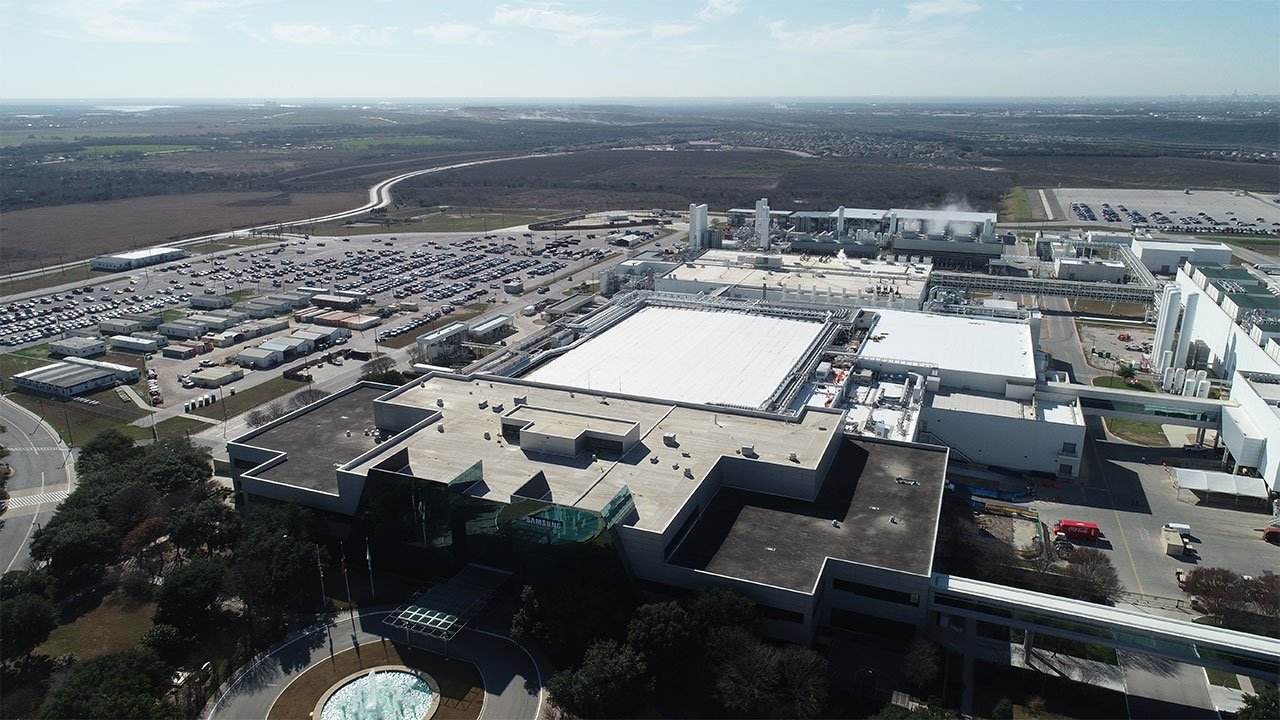Samsung to build $17B semiconductor fab in Taylor, Texas
Samsung on Tuesday announced plans to build an advanced semiconductor production facility in Taylor, Texas, a project estimated to create more than 2,000 directly-related high-tech jobs in the region.

With a total anticipated outlay of $17 billion for buildings, property improvements, machinery and equipment, the chip fab is Samsung's largest investment in the U.S. to date, the company said.
The facility expands the South Korean tech giant's presence in Texas, which is currently limited to a chip plant in Austin. Samsung's new fab will be dedicated to the manufacture of silicon to be applied in a variety of segments including mobile, 5G, high-performance computing and artificial intelligence. According to The Wall Street Journal, capacity will go toward contract manufacturing.
"With greater manufacturing capacity, we will be able to better serve the needs of our customers and contribute to the stability of the global semiconductor supply chain," said Kinam Kim, Vice Chairman and CEO, Samsung Electronics Device Solutions Division.
The company plans to break ground on the 5 million-square-meter site in the first half of 2022, with hopes to have the facility up and running in the second half of 2024. The plant is expected to create more than 2,000 jobs, and thousands of related jobs, when fully operational. Samsung also intends to create a Samsung Skills Center for the Taylor Independent School District that will provide skill development, internships and recruiting opportunities to local students.
Taylor reportedly offered tax incentives to woo Samsung, including property tax breaks that equate to about 92.5% for the first 10 years, the WSJ reported Monday.
"In addition to our partners in Texas, we are grateful to the Biden Administration for creating an environment that supports companies like Samsung as we work to expand leading-edge semiconductor manufacturing in the U.S.," Kim said. "We also thank the administration and Congress for their bipartisan support to swiftly enact federal incentives for domestic chip production and innovation."
Biden and Congress are looking to bolster U.S. chip manufacturing through funding and industry subsidies. In June, the Senate approved $52 billion in subsidies for new chipmaking facilities, though the legislation has yet to be approved by the House.
Beyond Samsung, TSMC and Intel are also planning major expansions to their respective semiconductor manufacturing capabilities amid a global chip crunch. TSMC, for example, plans to spend $100 billion on production-related investments over the next three years.
Read on AppleInsider

With a total anticipated outlay of $17 billion for buildings, property improvements, machinery and equipment, the chip fab is Samsung's largest investment in the U.S. to date, the company said.
The facility expands the South Korean tech giant's presence in Texas, which is currently limited to a chip plant in Austin. Samsung's new fab will be dedicated to the manufacture of silicon to be applied in a variety of segments including mobile, 5G, high-performance computing and artificial intelligence. According to The Wall Street Journal, capacity will go toward contract manufacturing.
"With greater manufacturing capacity, we will be able to better serve the needs of our customers and contribute to the stability of the global semiconductor supply chain," said Kinam Kim, Vice Chairman and CEO, Samsung Electronics Device Solutions Division.
The company plans to break ground on the 5 million-square-meter site in the first half of 2022, with hopes to have the facility up and running in the second half of 2024. The plant is expected to create more than 2,000 jobs, and thousands of related jobs, when fully operational. Samsung also intends to create a Samsung Skills Center for the Taylor Independent School District that will provide skill development, internships and recruiting opportunities to local students.
Taylor reportedly offered tax incentives to woo Samsung, including property tax breaks that equate to about 92.5% for the first 10 years, the WSJ reported Monday.
"In addition to our partners in Texas, we are grateful to the Biden Administration for creating an environment that supports companies like Samsung as we work to expand leading-edge semiconductor manufacturing in the U.S.," Kim said. "We also thank the administration and Congress for their bipartisan support to swiftly enact federal incentives for domestic chip production and innovation."
Biden and Congress are looking to bolster U.S. chip manufacturing through funding and industry subsidies. In June, the Senate approved $52 billion in subsidies for new chipmaking facilities, though the legislation has yet to be approved by the House.
Beyond Samsung, TSMC and Intel are also planning major expansions to their respective semiconductor manufacturing capabilities amid a global chip crunch. TSMC, for example, plans to spend $100 billion on production-related investments over the next three years.
Read on AppleInsider

Comments
Plus the Jekyll/Hyde attitude of the business world is always fascinating. They relentlessly pursue government subsidies while also relentlessly portraying themselves as if they're self-made and independent.
Also, Taylor, Texas is merely waiving property taxes for 10 years, not writing Samsung a check. I know that outrages the pro-tax crowd for ideological reasons, but how much property taxes would Taylor, Texas have collected on the VACANT plot of land that Samsung is going to build their foundry on otherwise? Exactly. Taylor is half an hour from their Austin foundry, but land is a lot cheaper in Taylor than in Austin, making the property tax and other financial considerations practical while still being able to tap the same talent pool. All things considered, a good deal. Far better than letting Arizona, California and New York - all of whom wanted this plant - get this foundry merely for the privilege of being able to say that you didn't want Samsung unless they were going to pay their fair tax burden. If you are New York City you can play hardball while adhering to that philosophy and wind up losing Amazon to Virginia, but Taylor, Texas doesn't have NYC's constellation of billionaires and Fortune 500 companies to fall back on.